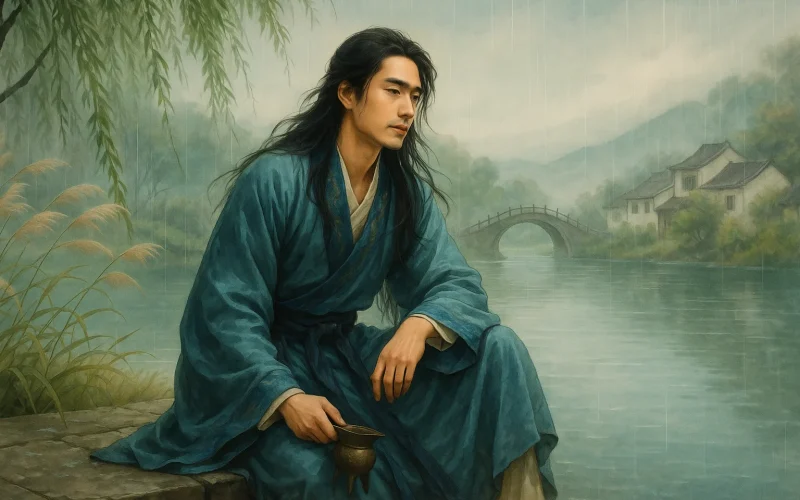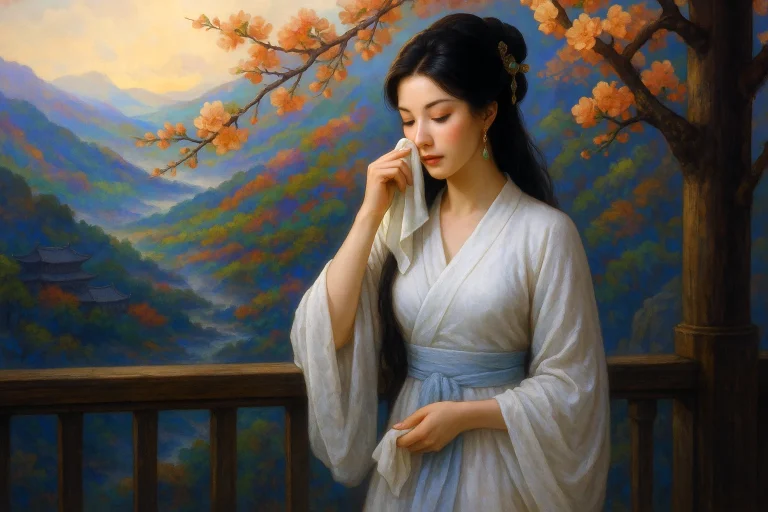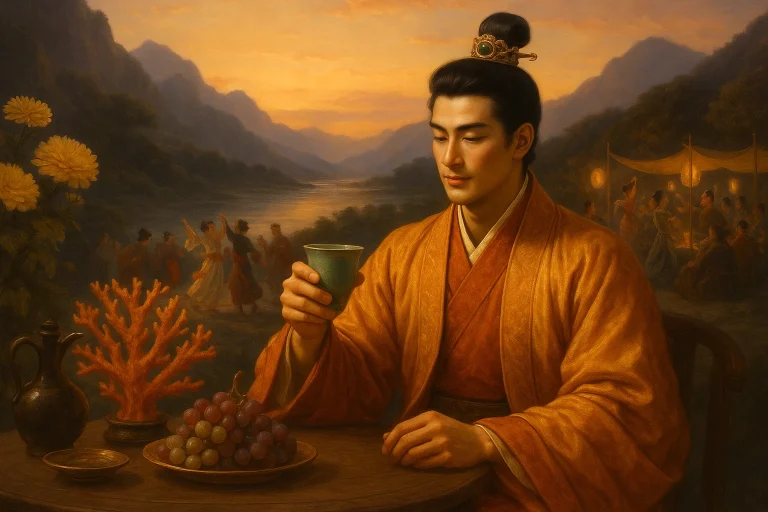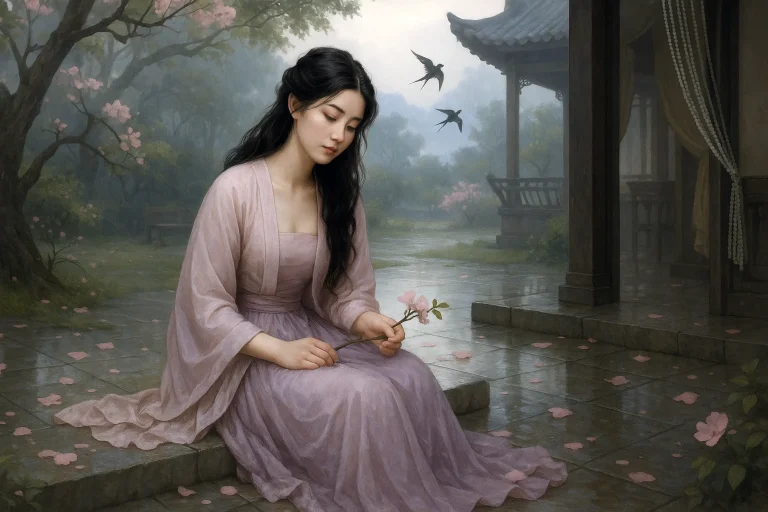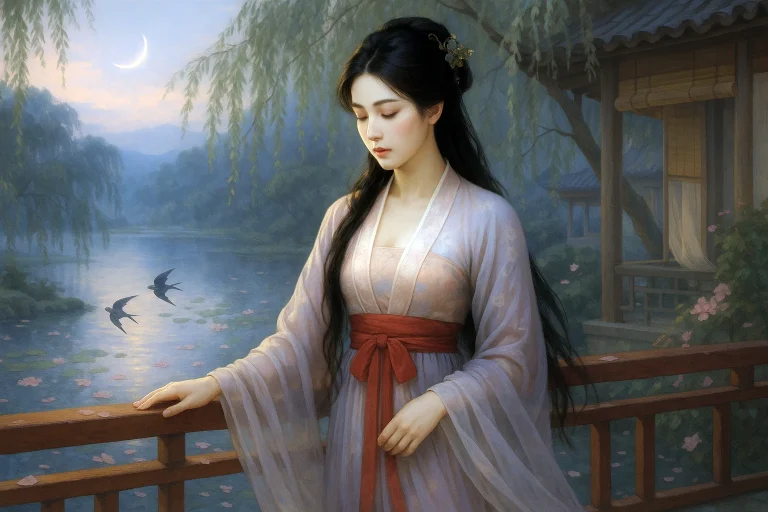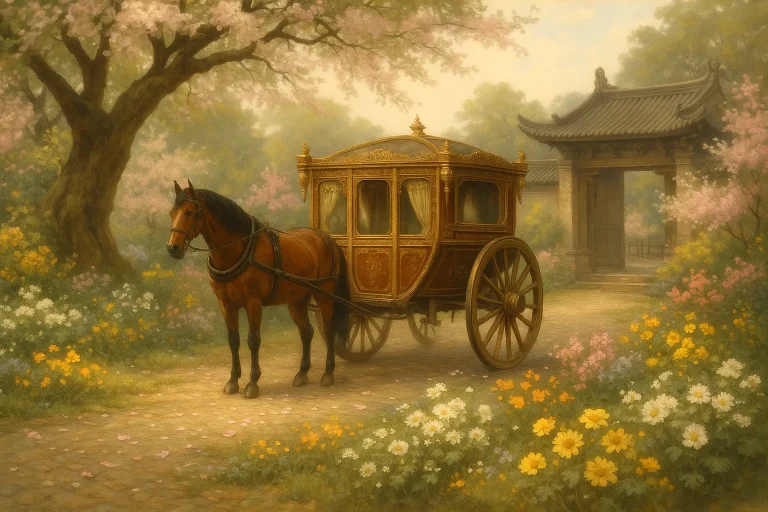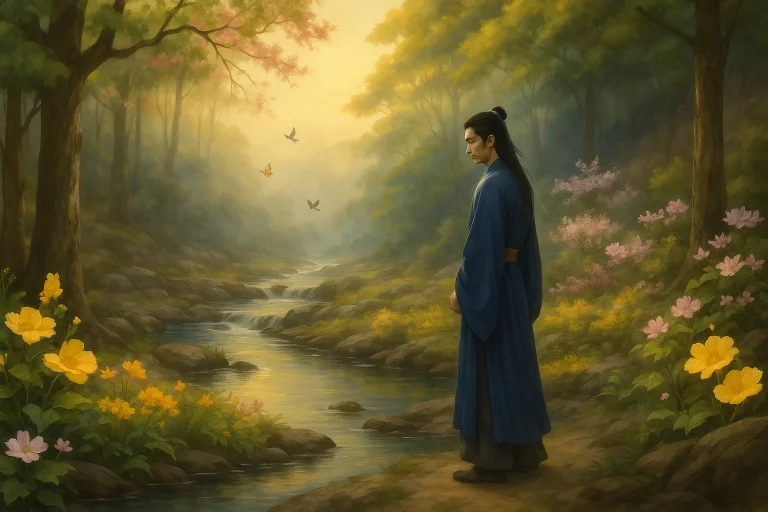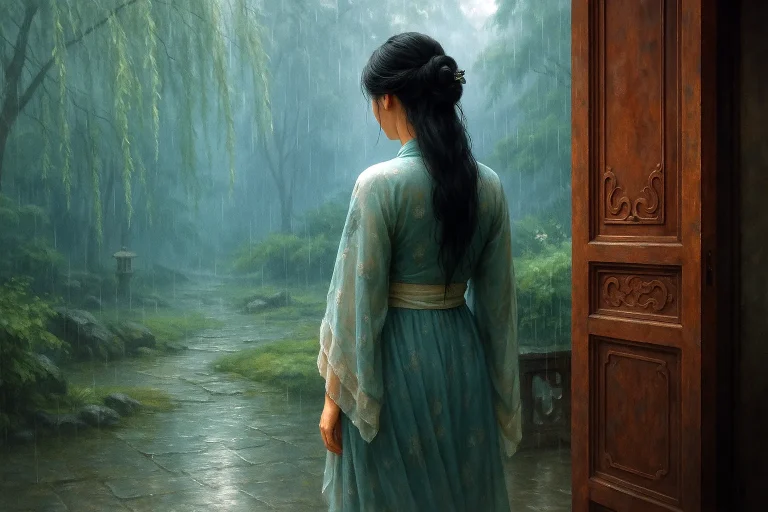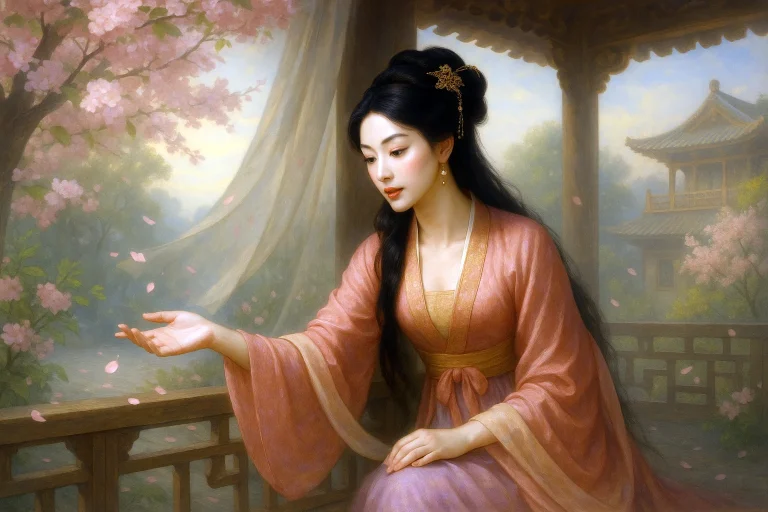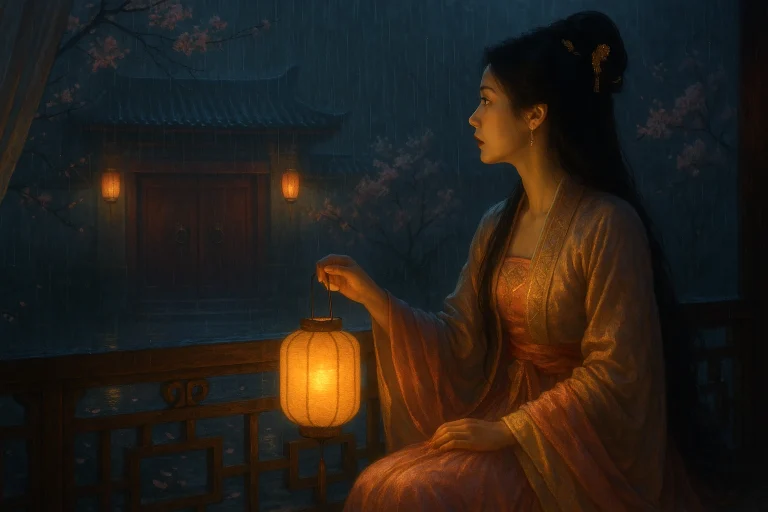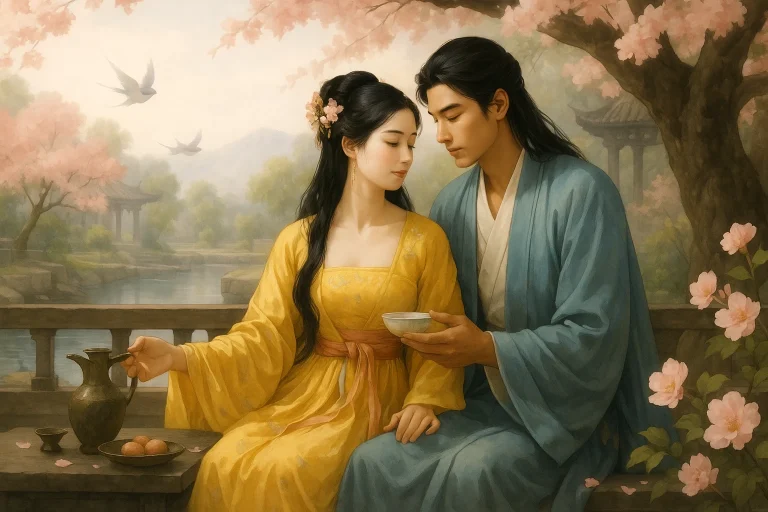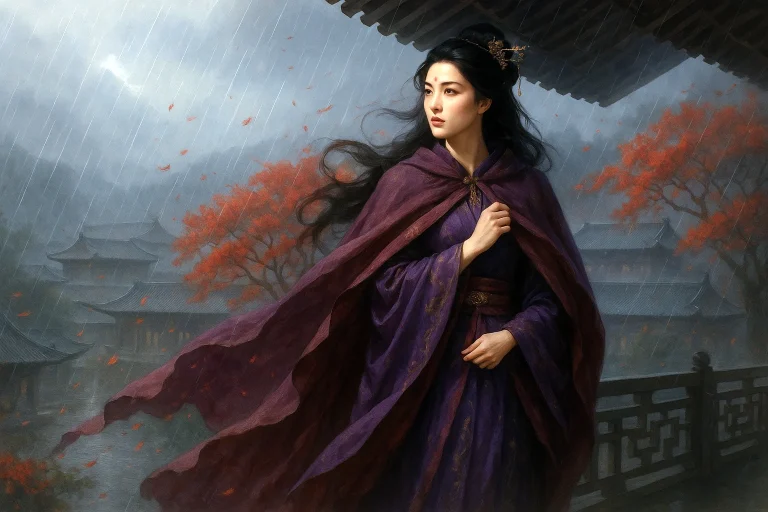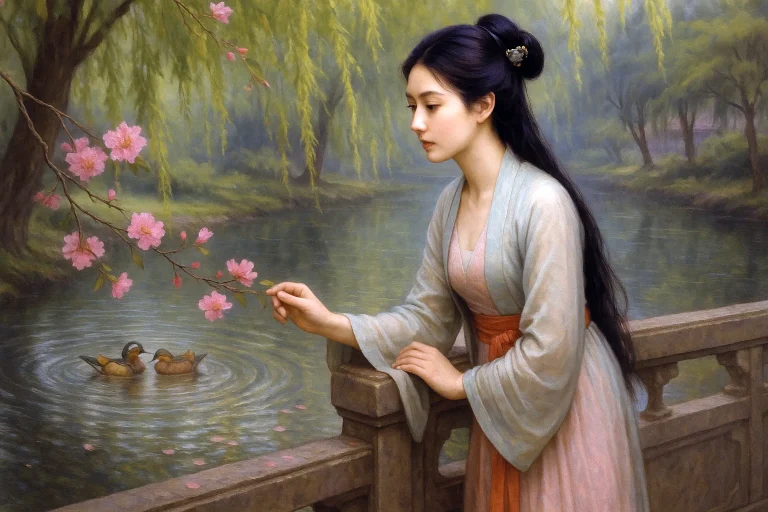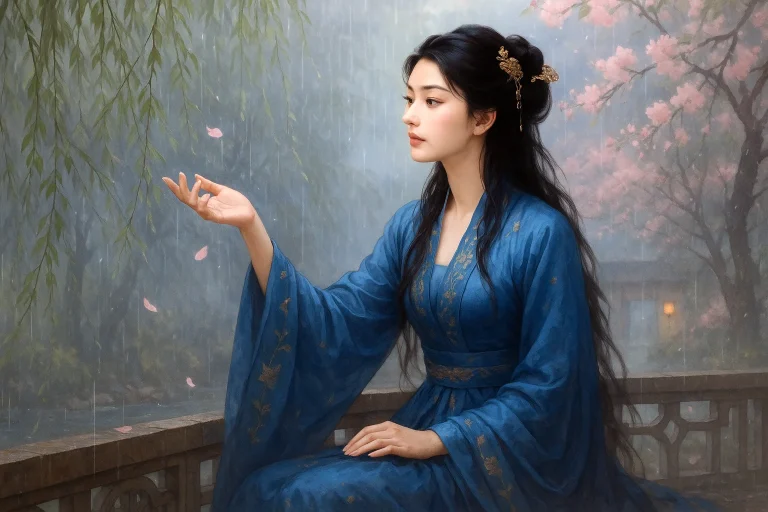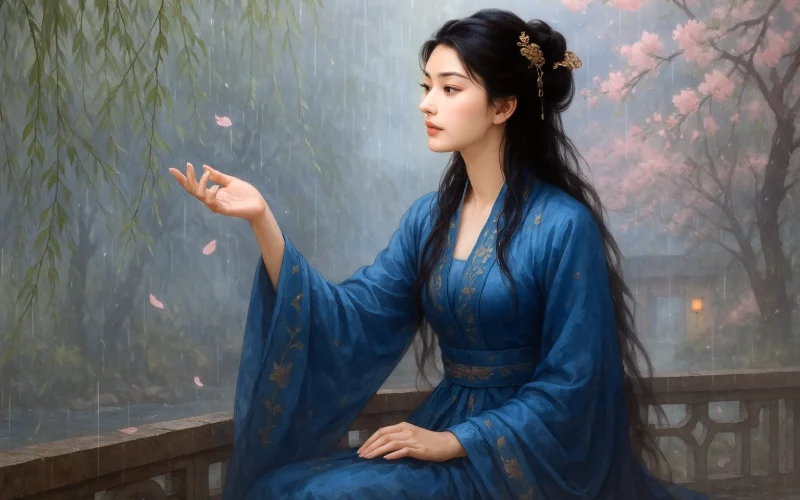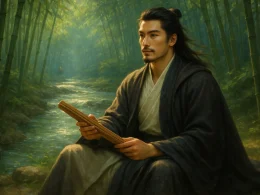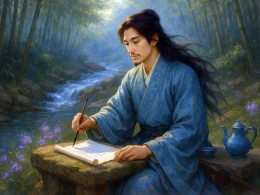Feng Yansi (冯延巳 903 - 960), courtesy name Zhengzhong, was a native of Guangling (modern-day Yangzhou, Jiangsu) and a renowned ci poet of the Southern Tang during the Five Dynasties and Ten Kingdoms period. Rising to the position of Left Vice Director of the Department of State Affairs (Zuo Puye Tongping Zhangshi), he enjoyed the deep trust of Emperor Li Jing. His ci poetry forged a new path beyond the Huajian tradition, directly influencing later masters like Yan Shu and Ouyang Xiu, playing a pivotal role in the transition of ci from "entertainment for musicians" to "literary expression of scholar-officials."
Major Works
Life
Feng Yansi, a leading literary figure of the Five Dynasties period, was born into a scholarly family. His father, Feng Lingjun, served as a proofreader in the Southern Wu court. From a young age, Feng displayed extraordinary literary talent, and together with his younger brother Feng Yanlu, they were known as the "Two Fengs of Guangling," earning the admiration of Li Bian, the founding emperor of the Southern Tang. In 943, at the age of forty, Feng was appointed Hanlin Academician Recipient of Edicts (Hanlin Xueshi Chengzhi) by Emperor Li Jing, marking the beginning of his tumultuous political career.
Within the Southern Tang court, Feng experienced repeated rises and falls. In 946, he became chancellor for the first time, forming the "Five Ghosts" faction with Song Qiqiu and Chen Jue, advocating expansionist policies against Min and Chu. After a military defeat in Fuzhou in 947, he was demoted to Junior Tutor to the Heir Apparent (Taizi Shaofu), during which he composed many ci reflecting on his life's vicissitudes. Reinstated as chancellor in 955, he took a hardline stance against the encroaching Later Zhou. Following the Southern Tang's defeat and submission in 958, he was appointed Left Vice Director of the Department of State Affairs by Emperor Li Yu, becoming a key figure in the Southern Tang's final years. In 960, amid the looming threat of the Northern Song armies, Feng passed away at fifty-eight, concluding a legendary life as both a literary master and statesman.
Literary Achievements
Feng Yansi left behind 112 ci, the most among Five Dynasties poets, with his artistic accomplishments evident in the following aspects:
- Thematic Innovation: Feng broke free from the Huajian tradition's focus on romantic dalliances. While he continued themes of boudoir lament and longing—such as in Magpie on the Branch: Who Says Idle Feelings Are Cast Aside (Que Taizhi: Shui Dao Xianqing Pao Zhi Jiu), depicting a woman's sorrow—he emphasized psychological depth over physical description. His ci frequently explored abstract emotions like "idle feelings" (xianqing) and "new sorrows" (xinchou), as seen in Magpie on the Branch: Where Have the Wandering Clouds Gone (Que Taizhi: Jiri Xingyun Hechu Qu): "Daily before flowers, often sick with wine, / Unafraid of the gaunt face in the mirror." This introspective style anticipated the works of Yan Shu and Ouyang Xiu. His historical ci, such as Song of Returning Home: Blue River Waters (Guiguo Yao: Jiangshui Bi), used Southern Dynasties allusions to reflect on dynastic rise and fall, broadening the thematic scope.
- Artistic Technique: Feng developed a unique lyrical paradigm. He employed repetitive phrasing to intensify emotion, as in Gathering Mulberries: The Small Hall Deep and Quiet (Caisangzi: Xiao Tang Shenjing Wu Ren Dao): "Vast landscapes fill my eyes, yet I long for distant places." Knocking at the Golden Gate: Sudden Wind (Ye Jinmen: Feng Zha Qi) famously begins with "Ruffling a pool of spring water," using keen observation to spark imagination. His ci structures were rigorous yet varied—Magpie on the Branch followed a scene-emotion sequence, while Toss the Ball blended scenery and feeling seamlessly. His language retained the elegance of Huajian poetry while incorporating scholarly refinement, creating a distinctive "testing solemn attire through tears" style.
- Musicality: Well-versed in music theory, Feng composed new tunes like Song of Longevity Mountain (Shoushan Qu) and Golden Inlaid Knife (Jincuo Dao). His ci adhered to strict tonal patterns yet flowed naturally. Shorter pieces like Pure Serene Music: Rain Clears, Mist at Dusk (Qingpingle: Yu Qing Yan Wan) glistened like scattered pearls, while longer compositions like Dancing in Spring Wind (Wu Chunfeng) unfolded gracefully. This "graceful rhythm and innovative melody" made his ci both singable and literarily profound, bridging Tang-Five Dynasties and Song ci.
Stylistic Features
- Innovation Beyond Huajian: Though a late Huajian representative, Feng transcended Wen Tingyun's "exquisite allure" and Wei Zhuang's "refined beauty," shifting ci from entertainment to a medium for scholar-official expression. Wang Guowei noted in Remarks on Lyrics: *"Feng Yansi's *ci, while retaining Five Dynasties' flair, expand its scope, heralding Northern Song trends."
- Influence on Northern Song Ci: Yan Shu and Ouyang Xiu inherited his lyrical approach; Zhang Xian and Liu Yong developed his long ci techniques; Su Shi and Qin Guan absorbed his classical elegance. Liu Xizai's Art Generalizations observed: "Yan Shu gained Feng's brilliance, Ouyang Xiu his depth." This influence persisted through the Southern Song, inspiring Jiang Kui and Wu Wenying.
- Literary Theory Contributions: His aesthetic ideal—"testing solemn attire through tears"—embodied literati reconciling personal anguish with artistic pursuit. This "dignified elegance within melancholy" presaged later "profound and restrained" poetic theory. Chen Tingzhuo praised: *"Feng's *ci* crown the Five Dynasties, rivaling Wen Tingyun's heights without imitation."*
Legacy
Feng's historical reception has been polarized:
- Political Criticism: Lu You's History of the Southern Tang condemned his "flattery and deceit"; Ma Ling's version censured his "reckless policies that weakened the state." Modern scholars contextualize these as partisan attacks, noting Feng's policies reflected the era's fractured politics.
- Literary Acclaim: Since the Song, critics like Feng Xu ranked him *"foremost of Five Dynasties *ci* poets"*; Zhang Huiyan listed him among *"three ci immortals"*; Liang Qichao hailed his *"dense beauty veiling profundity, opening Song ci's gate."*
- Modern Scholarship: Tang Guizhang's Complete Ci of the Song meticulously collated his works; Ye Jiaying reinterpreted his political allegories through "the beauty of passive virtue"; Stephen Owen analyzed his survival strategies as an intellectual in turmoil.
- Cultural Impact: His Knocking at the Golden Gate was adapted for guqin; Long-Lived Woman (Changming Nü) became a wedding song; Magpie on the Branch inspired modern dance. Yangzhou's Feng Yansi Memorial and Nanjing's Southern Tang Mausoleum exhibit his legacy, ensuring this transitional figure's artistic brilliance endures.






